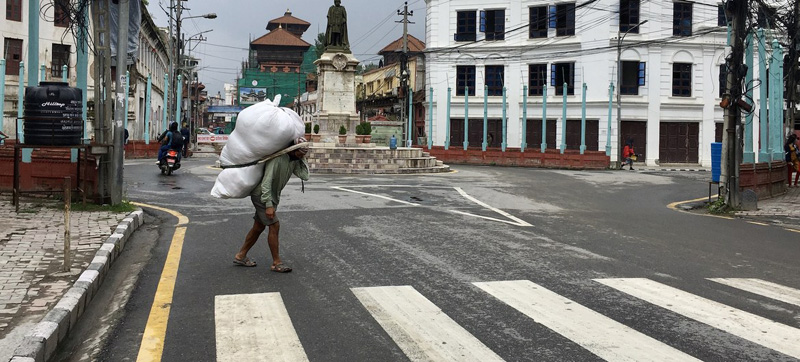 Poverty
Poverty
COVID-19 could see over 200 million more pushed into extreme poverty, new UN development report finds
New York: An additional 207 million people could be pushed into extreme poverty by 2030, due to the severe longterm impact of the coronavirus pandemic, bringing the total number to more than a billion, a new study from the UN Development Programme (UNDP) has found.
According to the study, released on Thursday, such a “high damage” scenario would mean a protracted recovery from COVID-19, anticipating that 80 per cent of the pandemic-induced economic crisis would continue over a decade.
Not a foregone conclusion
The gloomy scenario, is however, “not a foregone conclusion”.
Such an ambitious but feasible “SDG push” scenario would also narrow the gender poverty gap, and reduce the female poverty headcount, even taking into account the current impacts of the COVID-19 pandemic, the agency added. A tight focus on achieving the Sustainable Development Goals (SDGs), could slow the rise of extreme poverty – lifting 146 million from its grip – and even exceed the development trajectory the world was on before the pandemic, UNDP said.
A “Baseline COVID” scenario, based on current mortality rates and the most recent growth projections by the International Monetary Fund, would result in 44 million more people living in extreme poverty by 2030 compared to the development trajectory the world was on before the pandemic.
COVID-19 ‘a tipping point’
Achim Steiner, UNDP Administrator, highlighted that the COVID-19 pandemic is a “tipping point” and the future would depend on decisions made today.
“As this new poverty research highlights, the COVID-19 pandemic is a tipping point, and the choices leaders take now could take the world in very different directions. We have an opportunity to invest in a decade of action that not only helps people recover from COVID-19, but that re-sets the development path of people and planet towards a fairer, resilient and green future.”
The concerted SDG interventions suggested by the study combine behavioural changes through nudges for both governments and citizens, such as improved effectiveness and efficiency in governance and changes in consumption patterns of food, energy and water.
The proposed interventions also focus on global collaboration for climate action, additional investments in COVID-19 recovery, and the need for improved broadband access and technology innovation.
The study was jointly prepared by UNDP and the Pardee Center for International Futures at the University of Denver. It assesses the impact of different COVID-19 recovery scenarios on sustainable development, and evaluates multidimensional effects of the pandemic over the next ten years.
Support Our Journalism
We cannot do without you.. your contribution supports unbiased journalism
IBNS is not driven by any ism- not wokeism, not racism, not skewed secularism, not hyper right-wing or left liberal ideals, nor by any hardline religious beliefs or hyper nationalism. We want to serve you good old objective news, as they are. We do not judge or preach. We let people decide for themselves. We only try to present factual and well-sourced news.







